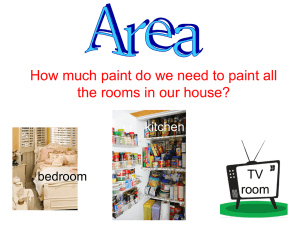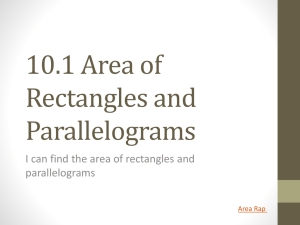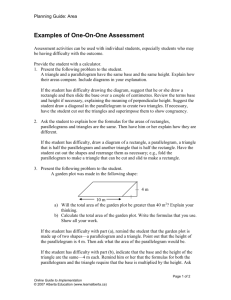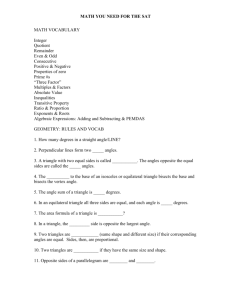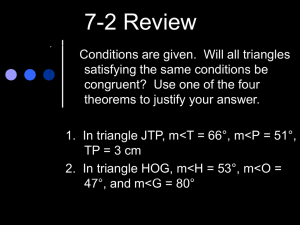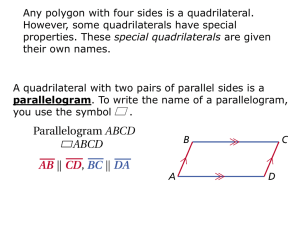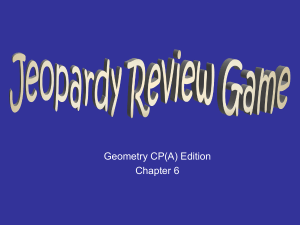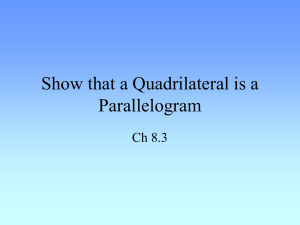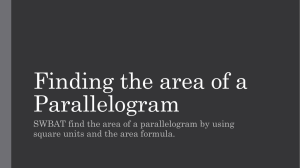Area of a Parallelogram Name Date __________ In this section, you
advertisement
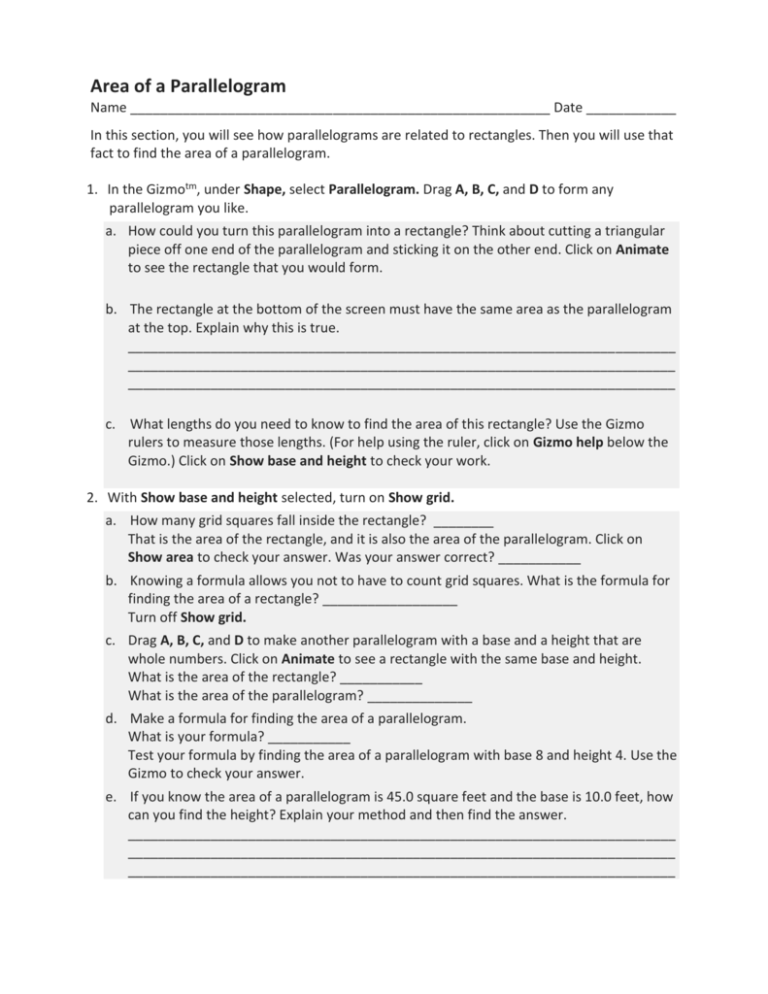
Area of a Parallelogram Name ________________________________________________________ Date ____________ In this section, you will see how parallelograms are related to rectangles. Then you will use that fact to find the area of a parallelogram. 1. In the Gizmotm, under Shape, select Parallelogram. Drag A, B, C, and D to form any parallelogram you like. a. How could you turn this parallelogram into a rectangle? Think about cutting a triangular piece off one end of the parallelogram and sticking it on the other end. Click on Animate to see the rectangle that you would form. b. The rectangle at the bottom of the screen must have the same area as the parallelogram at the top. Explain why this is true. _________________________________________________________________________ _________________________________________________________________________ _________________________________________________________________________ c. What lengths do you need to know to find the area of this rectangle? Use the Gizmo rulers to measure those lengths. (For help using the ruler, click on Gizmo help below the Gizmo.) Click on Show base and height to check your work. 2. With Show base and height selected, turn on Show grid. a. How many grid squares fall inside the rectangle? ________ That is the area of the rectangle, and it is also the area of the parallelogram. Click on Show area to check your answer. Was your answer correct? ___________ b. Knowing a formula allows you not to have to count grid squares. What is the formula for finding the area of a rectangle? __________________ Turn off Show grid. c. Drag A, B, C, and D to make another parallelogram with a base and a height that are whole numbers. Click on Animate to see a rectangle with the same base and height. What is the area of the rectangle? ___________ What is the area of the parallelogram? ______________ d. Make a formula for finding the area of a parallelogram. What is your formula? ___________ Test your formula by finding the area of a parallelogram with base 8 and height 4. Use the Gizmo to check your answer. e. If you know the area of a parallelogram is 45.0 square feet and the base is 10.0 feet, how can you find the height? Explain your method and then find the answer. _________________________________________________________________________ _________________________________________________________________________ _________________________________________________________________________ Area of a Triangle In this section, you will explore the relationship between triangles and parallelograms, and you will see how that relationship helps you find the area of a triangle. 1. Under Shape, select Triangle. Drag A, B, and C to form any triangle you like. Click Animate. a. The animation shows the triangle being copied and the two triangles put together to form a new shape. What type of polygon is formed? __________________________ b. If two triangles form one parallelogram, how is the area of one triangle related to the area of the parallelogram? _______________________________________________________________________ If the formula for the area of the parallelogram is A = bh, what do you think the formula for the area of the triangle is? _____________________ c. Click on Show base and height. Drag A, B, and C to form a triangle with base 10 and height 4. Test your formula by finding the area of this triangle and click on Show area to check your answer. Does your formula work? ________________________ 2. Use the formula you found for the area of a triangle to answer the questions below. a. Find the area of a triangle with base = 8 units and height = 3 units. ________________ b. If you know the area of a triangle is 30 square inches and the height is 5 inches, how can you find the base? Explain your method and then find the answer. _________________________________________________________________________ _________________________________________________________________________ _________________________________________________________________________
